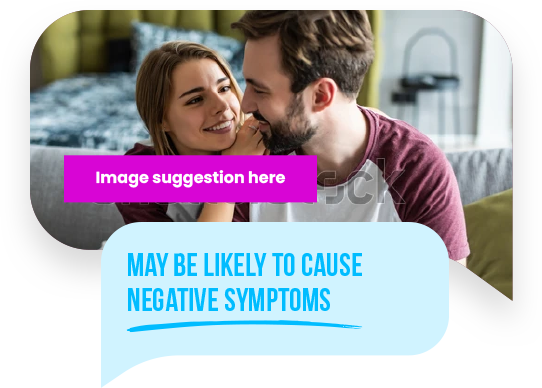PROS/CONS
Pros
Don’t need to remember to take/use it daily or weekly.
Can’t forget to take it or use it in the wrong way. It is also not affected by vomiting or diarrhoea like some methods of contraception.
Is 94% effective at preventing pregnancy with typical use.
Can stop periods in some women.
Prevents pregnancy for up to 8-13 weeks.
Does not contain oestrogen but does contain progesterone.
Once injected, you don't need to worry about contraception in the moment.
It can be used when breastfeeding, 6 weeks after birth.
Can be self-administered or administered by a HCP.
Cons
Your periods may become irregular, lighter, heavier or longer.
It may take up to one year for your period and fertility to return to normal after discontinuation of use.
Some women prefer hormone free options.
Does not protect against HIV infection (AIDS) and other sexually transmitted infections (STIs).
It may cause weight gain.
It may cause breast tenderness.
Can cause or worsen acne in some women.
Some women experience mood changes, including mood swings, depression, or depressed mood.
The pros and cons listed are not exhaustive. Talk to your doctor or nurse for more information.
SIDE EFFECTS
Injection side effects
You may experience side effects like headaches, acne, hair loss, decreased sex drive, weight gain and mood swings.

The contraceptive injection may cause irregular bleeding. In some cases, it may cause shorter, lighter periods, or no periods at all.
The contraception injection may cause weight gain in some women.
For some women, hormonal contraception can negatively impact their mood. Some women experience mood swings when using the contraceptive injection.
The injection can cause or make acne worse in some women. This is because it contains the hormone progestogen which can increase the amount of oil (sebum) produced by the sebaceous glands of the skin leading to more spots.
-
Insomnia
-
Libido decreased
-
Dizziness
-
Headache
-
Abdominal pain
Nausea
Menometrorrhagia (heavy, irregular, prolonged menstrual bleeding), Metrorrhagia (bleeding in between your period), Menorrhagia (heavy menstrual bleeding), Dysmenorrhoea (period pain), Amenorrhoea (absence of periods)
Vaginitis (vaginal inflammation)
Breast pain
Fatigue
There are two different types of injectable contraceptives – one is injected by your doctor or nurse, the other can be self-injected at home.
-
Thinning of the bones - Using the contraceptive injection affects your natural oestrogen levels, which can cause thinning of the bones (Osteoporosis). This is not a problem for most women because the bone replaces itself when you stop the injection, and it does not appear to cause any long-term problems. Sometimes the doctor may recommend that you stop after 2 years so there's no long-term effect on your bones.
-
Injection site reactions - As with any injection, there’s a small risk of a reaction at the site of injection, which may cause irritation, swelling or a scar.
-
Infection - There's a small risk of infection at the site of the injection. In very rare cases, some people may have an allergic reaction to the injection.
PP-UN-WHC-GB-0076 September 2023




